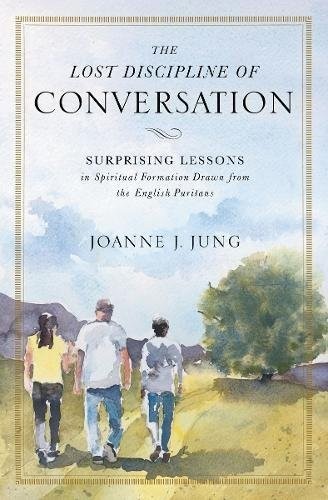
This is part one of a three-part series that is based on my forthcoming book The Lost Discipline of Conversation, to be released by Zondervan in 2018.You can read the first installment of this blog series and the second installment here.
We are made in the image of God, an image that is tarnished yet has survived the fall. Who we are is intrinsically connected to who God is. Our spiritual depth, our ability to know ourselves, is linked to knowing God and who He is. This is where God’s Word comes into the equation, because the Bible is one of the primary ways God discloses himself—what He’s done, what He’s doing, and what He promises to do. Spiritual depth is far more than how well you know the Scriptures; it is knowing the Word of God and the God of the Word, the book and its author. We need a better, more thoughtful understanding of what He is like, what He says, what He expects of those who bear His image and why, and how He empowers those who follow His son, Jesus.
The convergence of knowledge of God and self that is found in the deepest recesses of your heart shows up in the way you live out what you believe (Proverbs 4:23). The heart, as the control center of the soul, directs our life. Living, then, is the heart in motion. That which enters the heart—what you know, what you feel, where you will to act—affects your attitude and thus your behavior. In Genesis 2:7, God breathes the breath of life into Adam and he becomes a living soul, a distinct creation of body and spirit. Biblically, the soul is the whole person. Because the soul is both body and spirit, our actions influence our heart as much as our thoughts do.
Spiritual authenticity occurs when faith and experience merge. Our lives are the very places where the truth of what God says in His Word meets us head on in the reality of our moment-by moment experiences. The more we know and are transformed by truth, the more we discover who we are and find our place in God’s history-making plan for humankind.
Human beings are created with the longing for belonging found in community. We were made to experience life with God and with others. Living is best done in community, so to be spiritually influenced is to be spiritually influencing. We long further to live consistently, engaging with others who are like-hearted, together cultivating our vertical relationship with God and our horizontal relationship with others. In community I learn more about who I am and my purpose in life. Who I am is fostered by who I am with. My truest identity is established by God’s Word and Spirit and is cultivated and enriched in the body of Christ, the body in which every part has significance and purpose. Being transparent in this community nurtures open and honest engagement about who we are and who we are becoming through challenges, victories, trials, and the mundane of our lives. Simultaneously, we are motivated by a desire to have a pure heart before God and others, allowing the truth of who God is and how He sees me as my Creator to form the “me in us.” This perspective is unique to Christians.
Christians are called to enter and continue in this journey of becoming, becoming who God originally designed us to become, persons of integrity and purpose so that no matter where we are, the time of day, or who we are with, we are the same person of godly character. No pretending. No faking. No spin doctoring. It is the you who is becoming more and more like Christ. This level of integrity requires soul-deep transformation.
Do not wait for someone to ask how you are and then answer with a polite, “Fine.” Take a moment to ask yourself, “What is the state of my soul?” Answer as honestly as you can. Share your thoughts with a trusted friend in a soul-to-soul talk. Together, bring your shared impressions and feelings to God. The truest measure of how we are doing is found in the well-being of our souls.
If, as you read the above prompts, a longing was stirred for the kind of community needed for this to happen, a place where these types of conversations can be honored and encouraged, you are among those who recognize the need for community with fellow believers. As the English Puritans will show us, there are a number of various contexts where this kind community and conversation can take place. Their understanding and use of “conference” is found more broadly in their application of the means of grace, or spiritual practices. These were designed to spur transformation, as you will begin to see ahead.
Taken from The Lost Discipline of Conversation by Joanne J. Jung. Copyright © 2018 by Joanne J. Jung. Used by permission of Zondervan. www.zondervan.com.
Watch for Dr. Joanne Jung’s book The Lost Art of Conversation: Surprising Lessons in Spiritual Formation Drawn from the English Puritans which will be published by Zondervan later this year. The book will be broken into three parts:
- Rediscovering a “Lost” Means of Grace
- Conference in Various Life Contexts
- Soul to Soul Bible Studies: Conferencing through God’s Word
 Biola University
Biola University
.jpg)
.jpg)

